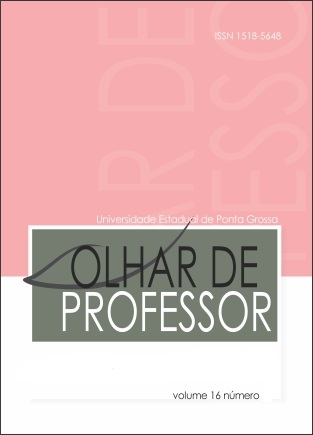O absenteísmo escolar na classe de repetentes: um estudo de caso etnográfico
Main Article Content
Abstract
Este estudo apresenta o absenteísmo escolar e sua regulamentação, além de observar estas questões a partir da perspectiva dos sujeitos de uma escola pública do Estado do Rio de Janeiro. Este artigo foi elaborado a partir da dissertação de mestrado, na qual, objetivava observar o processo de escolarização de alunos e alunas de uma classe constituída apenas por repetentes e multi repetentes. Este estudo foi fundamentado na abordagem etnográfica, no qual utilizou recursos etnográficos tais como: observação participante, entrevista, análise documental que mediante uma análise indutiva resultou em reflexões e discussões sobre o processo de escolarização dos alunos da classe de repetentes. Dentre estas reflexões e discussões o absenteísmo está presente como parte deste processo. Este artigo tem intuito de contribuir para discussões e pesquisas sobre o absenteísmo escolar, repetência e fracasso escolar.
Downloads
Article Details
Authors who publish in this journal agree with the following terms:
a) Authors keep the copyrights and concede the right of its first publication to the magazine. The work piece must be simultaneously licensed on the Creative Commons Attribution License which allows the paper sharing, and preserves both the author identity and the right of first publication to this magazine.
b) Authors are authorized to assume additional contracts separately, to not-exclusively distribution of the paper version published in this magazine (e.g.: publish in institutional repository or as a book chapter), with the author identity recognition and its first publication in this magazine.
c) Authors are permitted and stimulated to publish and distribute their papers online (e.g.: in institutional repository or on their personal webpage), considering it can generate productive alterations, as well as increase the impact and the quotations of the published paper.
d) This journal provides public access to all its content, as this allows a greater visibility and reach of published articles and reviews. For more information on this approach, visit the Public Knowledge Project, a project that developed this system to improve the academic and public quality of the research, distributing OJS as well as other software to support the publication system of public access to academic sources.
e) The names and e-mail addresses on this site will be used exclusively for the purposes of the journal and are not available for other purposes.

This work is licensed under a Creative Commons Attribution 4.0 International License.





